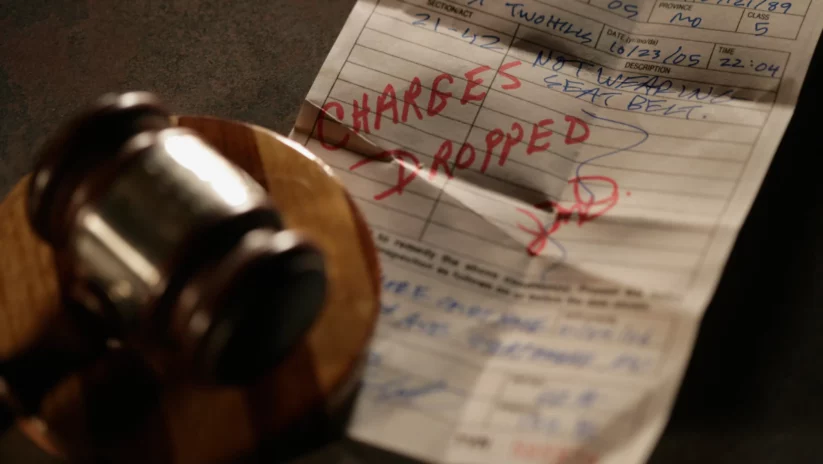When Does the IRS Pursue Criminal Charges?
The IRS considers criminal charges in cases of willful tax evasion and fraud. However, most tax violations are considered civil infractions that lead to penalties and interest charges rather than criminal prosecution. Understanding when the IRS is likely to pursue criminal charges can help taxpayers file accurate returns and avoid serious legal consequences.
What Triggers an IRS Criminal Investigation?
Criminal investigations by the IRS are handled by the IRS Criminal Investigation (CI) division. CI initiates investigations when there is suspicion ofintentional wrongdoing rather than an innocent mistake. Some red flags that may prompt a criminal investigation include:
- Substantially underreporting income – Omitting income sources or drastically understating business revenues or capital gains.
- Using false or altered documents – Creating fake invoices or balance sheets, altering checks, or falsifying deductions and expenses.
- Identity theft – Using a stolen Social Security number or filing false returns using someone else’s identity.
- Employment tax evasion – Willfully failing to pay payroll taxes for employees.
- Frivolous arguments – Repeatedly filing returns disputing requirements to pay taxes.
- Operating illegal tax shelters or schemes – Promoting or participating in abusive tax structures to help others evade taxes.
- Money laundering – Disguising the true source of funds, often connected to criminal activity.
- Offshore tax evasion – Hiding assets and income in foreign accounts to avoid taxes.
When is Tax Evasion Considered Criminal?
The distinguishing factor between civil and criminal tax violations is the intent and willfulness of the taxpayer’s actions. Although the line isn’t always clear, some key differences stand out:
- Civil tax infractions are typically unintentional mistakes, oversight errors, or negligence without malintent. Filing an inaccurate return or failing to pay the full amount due does not necessarily mean criminal tax evasion.
- Criminal violations require willful intent to evade taxes, including deliberate actions like concealing income, falsifying deductions, failing to file returns, repeated tax avoidance, or conspiracy to defraud the IRS.
- The IRS has the burden of proof to demonstrate willfulness and intentional misconduct beyond reasonable doubt for criminal charges.
How the IRS Investigates Suspected Tax Crimes
Special agents in the IRS Criminal Investigation (CI) division handle suspected tax crimes. Investigations may include:
- Interviewing the subject, witnesses, associates, employees, or accountants
- Issuing subpoenas to obtain records, testimony, and documentation
- Reviewing records from banks, businesses, and third parties
- Conducting surveillance and undercover operations
- Tracing funds through accounts and financial transactions
- Executing search warrants to obtain evidence
- Coordinating with other agencies like the Department of Justice
If the investigation uncovers substantial evidence of intentional wrongdoing, the IRS may recommend criminal prosecution. However, subjects still have opportunities to cooperate and set the record straight before formal charges are filed.
What Are the Consequences of Criminal Tax Conviction?
The penalties for criminal tax fraud are severe. Some potential consequences include:
Fines and Penalties
- Felony conviction – Tax evasion and fraud over $10,000 in one tax year is punishable by up to 5 years in prison and fines up to $250,000.
- Misdemeanor conviction – Minor tax crimes under $10,000 carry up to 1 year in jail and fines up to $100,000.
- Repeat offenders face harsher sentences of up to 20 years in prison.
- Tax due, plus interest, late fees, and civil fraud penalties equaling up to 75% of the unpaid tax.
Restitution and Forfeiture
- Payback taxes owed
- Seizure of property and assets obtained through tax evasion
- Forfeit illegal proceeds from unreported income
Professional and Personal Consequences
- Loss of certain rights and privileges including gun ownership and professional licenses
- Damage to personal and professional reputation with criminal record
- Potential impact on immigration status for non-citizens
When Tax Penalties Become Criminal
Certain civil tax penalties imposed by the IRS can also prompt criminal charges if they involve false or fraudulent statements made willfully. Situations that may lead to criminal prosecution include:
- Accuracy penalties for substantially understating income on a return due to fraud
- False W-4 penalties for claiming excessive allowances to reduce withholding
- Abusive return preparer penalties for preparing fraudulent returns intentionally
- Failure to file information returns used to conceal income
- Failure to furnish correct payee statements like inaccurate 1099s and W-2s
- Civil fraud penalties imposed due to clear evidence of deception
Voluntarily Disclosing Tax Violations to the IRS
Taxpayers who discover they failed to report income or pay taxes due can avoid criminal charges by disclosing it to the IRS first. Requirements for the Voluntary Disclosure Practice program include:
- Disclose before the IRS has initiated an audit or investigation
- Provide truthful, timely, and complete information including amended returns for the last 8 years
- Pay back taxes, interest, and penalties or agree to a payment plan
- Voluntarily disclose before being contacted by the IRS about the tax issue
This opportunity to avoid prosecution is only available to taxpayers who come forward before the IRS detects the violations themselves.
When Should a Taxpayer Seek Legal Counsel?
Lawyers advise seeking experienced legal counsel for a criminal tax investigation if:
- The IRS initiates a criminal investigation with potential criminal charges
- There is exposure to substantial civil penalties and prosecution
- Conviction could result in prison time and heavy fines
- Prosecution could lead to forfeiture of assets
- It involves complex tax and financial transactions
Early involvement of legal counsel protects a taxpayer’s rights and may help mitigate penalties. A tax attorney can evaluate the case and guide the taxpayer in taking corrective actions.
Options for Meeting Tax Obligations Without Facing Criminal Charges
Most taxpayers want to comply with tax laws without facing criminal prosecution. Some options include:
- File past returns that were not submitted and pay back taxes
- Amend incorrect returns to report omitted income or claim only legitimate deductions
- Set up IRS payment plans to pay back taxes over time if the balance due is unaffordable
- Claim innocent spouse relief if the issues are due to a former spouse
- Correct business payroll tax issues like unpaid payroll taxes
- Avoid frivolous arguments on returns disputing tax laws
- Voluntarily disclose violations before IRS detection as outlined above
Conclusion
Understanding when tax violations cross the line into criminal conduct can help taxpayers steer clear of serious prosecutions. While the IRS reserves criminal charges for intentional acts of tax evasion, fraud, and false statements, taxpayers are still responsible for unintentional civil errors and paying past due taxes, interest, and penalties. Those who discover they omitted income or made other tax mistakes are wise to take corrective action and seek experienced legal counsel if needed to mitigate penalties and avoid criminal prosecution.
FAQs:
Q: Can the IRS file criminal charges if I make an honest mistake on my taxes?
A: Generally not. Criminal charges require clear and convincing evidence that you willfully intended to evade taxes. Honest mistakes typically result in civil tax penalties, not criminal prosecution.
Q: If I underreported income without realizing it at the time, is that considered criminal tax evasion?
A: Not necessarily. Criminal tax evasion requires willfully and knowingly underreporting income with intent to defraud. If it was an innocent mistake, filing an amended return and paying back taxes owed would correct the error without criminal charges.
Q: What happens if I can’t pay my full tax bill? Could I face jail time?
A: Failure to pay taxes owed does not by itself lead to criminal charges. You may owe penalties and interest but options like IRS payment plans are available without facing criminal tax prosecution.
Q: Can the IRS bring criminal charges against me for something that happened many years ago?
A: There is no statute of limitations on criminal tax fraud. However, in voluntary disclosure cases taxpayers are only required to file 6 years of amended returns.
Q: Are the penalties for criminal tax evasion weaker at the state level?
A: No, state tax departments have similar criminal investigation units and often coordinate with the IRS on joint prosecutions for tax fraud and evasion.




